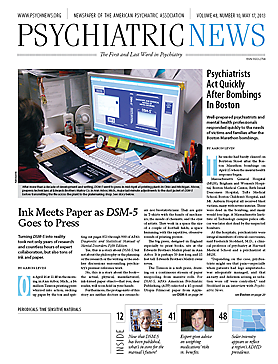On April 3, Republicans in the House of Representatives released the second draft of a proposal for eliminating the sustainable growth rate (SGR), a flawed and much-maligned payment formula that almost every year has called for major cuts in Medicare reimbursement to physicians.
While still evolving and not yet translated into draft legislation, the proposal has gained traction as a substantive strategy for repealing and replacing the SGR after years of congressional inaction on the issue. The proposal’s feasibility also has been bolstered by recent figures from the Congressional Budget Office that put the cost of eliminating the SGR at $138 billion, a drop of more than $100 billion from previous estimates.
The latest iteration of the SGR reform proposal provides clarity on the plan’s three-tiered structure. The initial phase would institute a period of stable, predictable payments to enable providers to prepare for the later stages of the plan, as well as to assess the applicability of alternative payment models.
During the second phase, provider payment rates would be partially based on the quality of care provided to beneficiaries. The third and final phase would offer additional incentive payments to providers based on “efficient use of health care resources.”
In an April 16 letter to Rep. Dave Camp (R-Mich.), chair of the House Ways and Means Committee, and Rep. Fred Upton (R-Mich.), chair of the House Energy and Commerce Committee, APA Medical Director and CEO James H. Scully Jr., M.D., provided detailed feedback on the proposal and how it affects the practice of psychiatry and Medicare patients’ access to mental health services.
Regarding the proposal’s introductory phase, Scully recommended that payment updates be stabilized for a minimum of four years. As for determining how those updates should be structured, Scully encouraged the legislators to consider the added costs to both patients and taxpayers associated with the treatment of co-occurring mental disorders and other medical ailments.
In evaluating the proposal’s second stage, Scully questioned the feasibility of the suggestion of an annual review of performance measurements coordinated with the Department of Health and Human Services, which he argued would be a “resource-heavy proposition for physician associations.” He also asserted that federal support would be essential in helping physicians meet their quality-improvement goals.
If providers’ efficient use of resources is going to be the determinant of incentive payments for the third phase of the proposed strategy, it will also be essential to introduce appropriate reimbursement policy and funding for innovative and evidence-based collaborative care for behavioral health, Scully said.
“We caution that little can be gleaned from stratifying all Medicare [fee-for-service] psychiatrists into a ‘risk-adjusted relative ranking system’ to compare individuals’ episode-based and per capita costs of care,” he wrote. “In terms of resource use, there may be little difference between outliers on both sides of the spectrum besides prescription patterns.”
Rather than determining practice efficiency based on the relative ranking of total or episodic care cost, Scully suggested that the actual cost effects of specific best practices be explored as an option.
Scully also noted that as medical and Medicare policy evolves to more strongly emphasize and encourage the development and implementation of coordinated care models, it is important to recognize that “current Medicare payment policy would seem to inhibit such activity.”
“A reversal of [the Centers for Medicare and Medicaid Services’] decision to not cover the new complex chronic care coordination codes would be a step in the right direction and a recognition of the value of appropriate and adequate care coordination,” he wrote.
Scully said APA remains hopeful that permanent repeal and replacement of the SGR can occur sometime this year. ■
